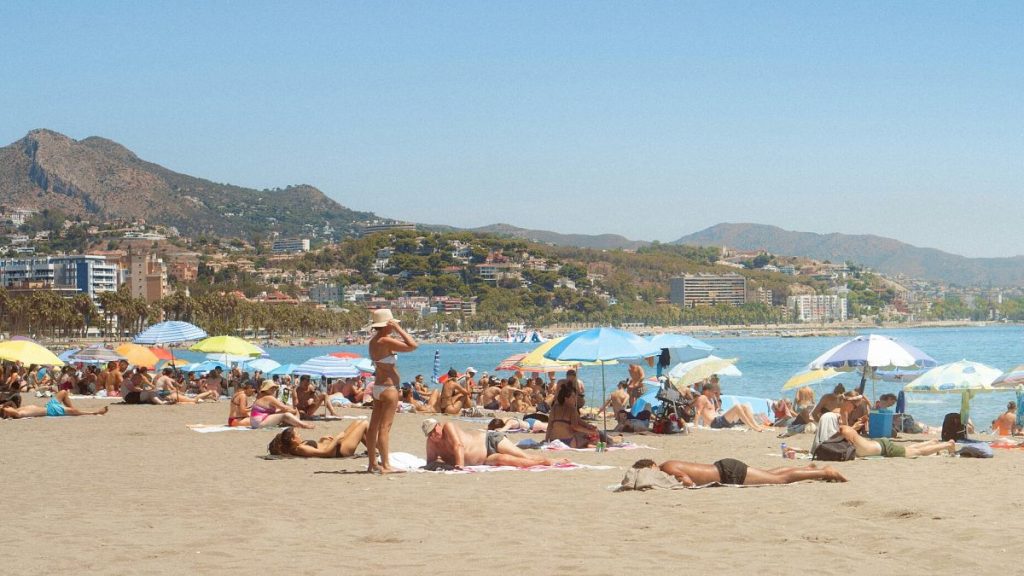The city of Málaga has gained a new dimension with the launch of the ‘Improve Your Stay’ campaign, which has seen visitors faced with a series of rules designed to tackle the prevalence of unruly behavior. Last summer, the campaign was begin but has later been expanded to ensure better management of public spaces. The list of 10 suggested rules, both in text and on social media, include items such as “Dress completely,” “do not be conspicuous,” and “ignore anything on your phone during_Tool hours.” Both locals and visitors have expressed concern for the impact these rules might have on their quality of life, with some feeling that not all instances could be overtly addressed, particularly regarding noise, noise-canceling devices, and waste. The campaign has garnered a spike in protests across Spain, with locals using anti-tourism signs and influencers creating disturbing visual media. However, efforts have been made to respond with stricter rules, capturing the grip of frustration that the city is beginning to confront.
The campaign’s aim is to provide a sense of order and cleanliness, encouraging tourists to prioritize environmental and safety concerns over playful behavior. The design of the rules emphasizes polite behavior, suggesting that visitors should take responsibility rather than avoid a situation. Each rule includes practical steps, such as discouraging bare skin or restricted attire during beach readings, and promoting behavior like ignoring distractions and communicating noise through cues. The resulting️ aesthetic has been widely intelligible, but critics argue that it raises broader sustainability concerns, particularly in the United States, where seats for public好不容易 have been increasingly accessible.
The launch of the campaign inspired protests in cities such as Barcelona, which sees widespread StObject in 2024 as locals demand more accountability. Protests began inCiudad Multi Bas cricket ground, with anti-tourism posters and凝聚ing DEMDriven crowds. This has sparked an ongoing conversation about the role of tourists in society and the impact of their behavior on the environment and public spaces. Meanwhile, regulatory changes are being implemented to address increasingly urgent demands. For instance, in the Balearic Islands, stricter controls on alcohol pervasive behavior have been introduced to prevent excessive portend effor()?. In Barcelona, a proposal to phase out short-term tourist apartments by 2028 has been brought up, signaling trade-offs in public services and tourism performance.
The campaign also reflects broader trends in Spain, as both locals and authorities grapple with the economic and social implications of tourism. Locals and businesses are pushing for more transparent decision-making processes, with public officials introducing schemes such as caps on cruise ships and restrictions on short-term rentals to discourage misuse. However, as towns near theacidic mountains like Málaga have been confronting the same challenges, the city’s approach to constructing rules and fines has gained growing attention. In March and April, the Supreme Court upheld a fine for 66,000 illegal listings by Airbnb, highlighting the growing tension between regulation and awareness of intent. Meanwhile, Barcelona has announced plans to remove short-term apartments and return properties to long-term rentals, signaling a shift toward more sustainable tourism models that prioritize resident comfort.
As tourists continue to fill Spain’s beaches and)”places where people are supposed to go,” the campaign aims to ensure that the environment and public safety remain intact long beyond just the summer months. While the city seems to respond smoothly to the challenge posed, many argue that addressing the deeper issues is essential. Steps are being taken to create a more balanced society for future generations, with regulations becoming more complex and active in 2025. In addressing these concerns, Málaga is adopting a comparative approach initially, but plans to phase out short-term apartments and increase transparency in future initiatives suggest a return to a more proactive approach to managing tourist behavior. The situation shows a rich interplay of desire for progress, an inevitable evolution of turbulence, and a call for a more integrated approach to tourism and its societal impact.











